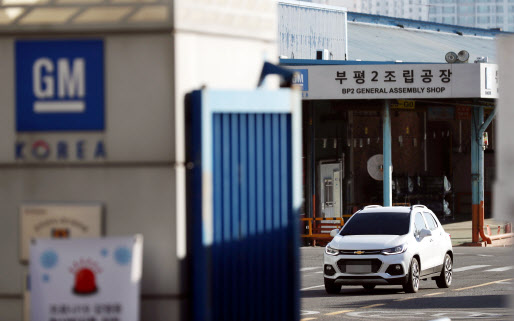|
Global automobile industry disrupts production due to shortage of semiconductor supply and demand
The Korea Automobile Industry Association (KAMA) reported on the 10th, “The supply and demand for vehicle semiconductors and response” said, “The supply delay of the vehicle power control micro control unit (MCU), which TSMC in Taiwan accounts for 70% of the global supply, has spread. “The global major automakers, such as Volkswagen, Toyota, and GM, are expanding their plant shutdowns or lowered production levels.”
Vehicle semiconductors are less profitable than other system semiconductors. In addition, since it is an item that must ensure safety, it requires high reliability under conditions such as temperature, humidity, and shock. Due to these characteristics, it is difficult for new companies to enter and to expand supply in a short period of time as the burden of defects, safety accidents, and recalls acts.
Currently, Volkswagen, Toyota, and GM are shutting down their factories or lowering their production due to a supply-demand disruption in semiconductors.
Volkswagen is expected to cut production of 100,000 units in the first quarter of this year, including production cuts of 50,000 units in China. Audi is experiencing production disruptions, with more than 10,000 people taking leave.
Toyota is temporarily adjusting production at its factories in China (Guangzhou), the United States (Texas) and Japan (Aichi Prefecture), and GM has also stopped operating some plants in the United States, Canada, Mexico and Korea.
Ford, Renault, FCA, Honda, and Nissan have also expanded their temporary suspension of production.
Global automakers are cutting production mainly for small cars with low profitability, and the supply of commercial and rental vehicles is decreasing. Although we are minimizing the damage due to exhaustion of inventory and production cuts mainly for unpopular models, if supply disruptions prolong, production disruption of flagship models is also a concern.
Domestic industry without immediate damage, concerns over prolonged period… “Need government-level efforts”
In the case of the domestic automobile industry, the supply-demand disruption of semiconductors was not generally affected. Hyundai Motor and Kia have no immediate production disruption as their suppliers secured inventory in advance. Renault Samsung Motors is expected to have no short-term problems due to the effects of the Renault Group’s long-term supply management and Ssangyong Motors’ production volume reduction.
However, GM Korea is facing the aftermath of a shortage of automotive semiconductor supplies, starting with the cancellation of extra-duty work in January, and reducing the production volume of the 2 plant in Bupyeong this month.
According to IHS Markit, the supply-demand disruption of automotive semiconductors is expected to be 670,000 units in the first quarter of this year alone. Considering that the MCU lead time (the time required from ordering to delivery), which is the core of the automotive semiconductor shortage issue, is 26 weeks ∽ 38 weeks, the global supply-demand disruption is expected to continue until the third quarter of this year.
The association expressed the opinion that government-level countermeasures are needed to minimize the effects of disruptions in supply and demand to the domestic industry.
The association emphasized that first, the government should ask major producers (Taiwan TSMC) to cooperate in increasing automotive semiconductor production to secure short-term supply. In order to discover alternative foundries, a long-term verification process is inevitable, so it is essential to expand the production volume of existing foundries.
It is known that major automakers such as the United States, Germany, and Japan have already requested cooperation from the Taiwanese government to increase the production of semiconductors for vehicles.
In addition, he argued that it is necessary to secure alternative production capabilities through domestic foundry companies such as Samsung Electronics and DB HiTek in preparation for prolonged supply-demand disruption. However, since vehicle semiconductors are not the main products of domestic foundry companies, the government needs new investment incentives and tax support. The association also predicted that in the long term, it is necessary to reduce its dependence on overseas by creating a cooperative industrial ecosystem between domestic fabless, foundry, and automobile industries.
Man-gi Chung, head of the Korea Automobile Industry Association, said, “With the crisis caused by Corona 19 not fully resolved, the disruption in the supply of semiconductors for vehicles is likely to spread the crisis in some of our automotive industry.” International cooperation efforts are required, such as requesting, but in the long run, it is necessary to expand domestic vehicle semiconductor development and production capabilities by establishing a cooperative network between domestic industries.”

